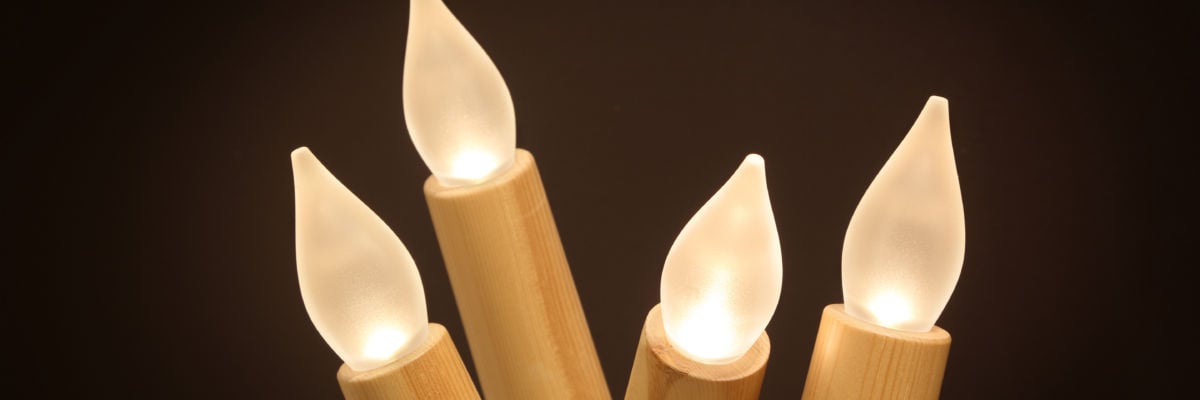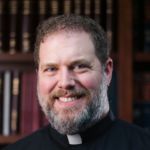
“For by one Spirit we were all baptized into one body—Jews or Greeks, slaves or free—and all were made to drink of one Spirit” (1 Cor. 12:13).
Back when I was an Episcopalian, it was fairly common to hear people speak of Pentecost as the “birthday of the Church.” I don’t know how common that language is among Catholics, but the title is partly true and partly misleading.
As we hear in our Gospel this morning, Jesus gave the Holy Spirit in a particular way to his apostles already in John 20—what is sometimes, again a bit misleadingly, referred to as the “Johannine Pentecost.” But this is not a different Holy Spirit from the Holy Spirit poured out at Pentecost any more than he is a different Holy Spirit from the one who “spake by the prophets,” or who hovered over the waters at the dawn of creation. As St. Paul reminds us over and over, there is one Spirit.
In one of his books, I recall theologian Henri de Lubac insisting that the Church was “catholic” even in the Upper Room at the Last Supper—her essence was already there, and her universality did not and does not depend on her universal transmission across the globe, into every language, or any other such thing. She is “catholic” in herself. But St. Augustine, along with many other Fathers, has no problem speaking about the “Church” in some way going all the way back to Adam and Eve. There’s a clear continuity, in his thinking, between the City of God first revealed in Eden and the City of God revealed at Pentecost.
One perennially tempting trinitarian heresy—think of this as a little preview of next Sunday!—is the idea that the three persons simply represent three distinct ages of revelation: first the Father, then the Son, then the Holy Spirit. The millenarianism of Joachim of Fiore in the twelfth century played with this error in its promotion of an impending “age of the spirit,” in which all institutions would dissolve. One hears little echoes of that in many a modern invocation of “the Spirit,” especially in the interest of different progressive causes, especially in the tired activism of the last century. The idea is that as the Spirit gradually becomes more prominent, we will cast off the shackles of all old and traditional things as we enter into the bold new future.
But this is a false spirituality and, to be frank, a false Spirit, for the one and only Holy Spirit spoken of by the New Testament is the Spirit of Jesus Christ and the Spirit of God the Father. The Trinity is not a competition, but an undivided unity.
It is just this unity that inspires so many false imitations. In addition to Christian attempts to forge a new Christianity without the Father and the Son, there have been over the centuries many secular attempts to forge a new Pentecost, a new human unity, apart from the Holy Spirit. The original attempt, the one clearly on the minds of the Apostolic Fathers when they speak about Pentecost, is the Tower of Babel in Genesis.
Perhaps some of us read that story and wonder what the big deal is. Why, after all, is God angry about a bunch of people building a tower? The tower is a sign of the bigger problem, which is the attempt to forge unity, and to become masters of the cosmos, without God. It represents what is actually a real human vocation to supernatural life. Human beings do stand, after all, as the apex of creation, the link between earth and heaven. But Babel represents a rejection of that same priesthood rejected in Eden and the promotion, in its stead, of a kind of self-sufficient dominance in which the human will defines all things, including the good. And over the centuries, we have seen many versions of this same attempt at unity, from the many ancient and modern empires to the ideologies or freemasonry and communism and fascism, to the postmodern succession of progressive causes—like a certain rainbow-colored cause coming soon to a June near you—which provide a blanket semblance of human unity and solidarity covering over the usual bad actors and motivations of human nature, especially greed and pride.
Perhaps, after hearing my little rant there against the usual low-hanging moral fruit, you find yourself wishing the Lord would render judgment, as he did on that first Tower of Babel, or as Our Lady at Fatima suggested—invoking deeply traditional language, I should say—that he would judge the world with fire. But, as Our Lady herself, who was at that first Pentecost, knows well, there is another fire—or again maybe we ought to say, the same divine fire in different form, for when it comes to the divine nature, there is no distinction between the fire of justice and the fire of love. The Lord did send his judgment and his fire on the apostles in the form of the Holy Spirit, who inspired them to preach the word of truth with power and conviction.
(I cannot take credit for this link between Fatima and Pentecost! I first heard it from Fr. Sebastian Walshe, O.Praem. in May of 2020.)
The Holy Spirit gives us gifts, in other words, not to destroy or punish a world gone astray, but to call it back to itself. Consider the glittering poetry of the Pentecost sequence Veni Sancte Spiritus (sometimes called “The Golden Sequence” for its lyrical and melodic beauty):
| Lava quod est sordidum,
riga quod est aridum, sana quod est saucium. Flecte quod est rigidum, fove quod est frigidum, rege quod est devium. |
What is soilèd, make thou pure;
What is wounded, work its cure; What is parchèd, fructify; What is rigid, gently bend; What is frozen, warmly tend; Strengthen what goes erringly. |
Perhaps the best reminder for us this Pentecost—and this is especially true for those many who will receive the sacrament of confirmation today—is that the Spirit is not about something happening out there, but something in here. Not that the Holy Spirit doesn’t have a hand in the working out of Providence and God’s care of history; certainly, he does. But the gift of the Holy Spirit is not about managing God’s providence for him, or about making sure that the various practitioners of false Pentecosts meet their reward. The gift is about making us holy so that we can live more fully the promises of our baptism, so that we can actually be good disciples of Christ, giving witness to his goodness and his love—and the unity that he alone offers—in a sinful and broken world. What the world needs now is much the same that it needed at that first Pentecost: men and women who have been so inflamed by the love of Jesus that they cannot help but share that love and that goodness with those they meet.
Once again we pray: come, Holy Ghost, and fill the hearts of thy faithful, and kindle in them the fire of thy love.



